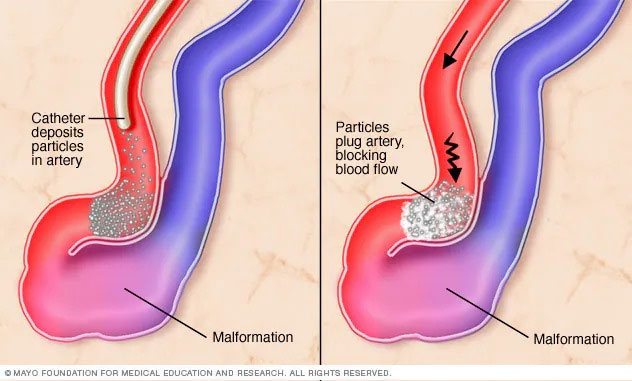
What is a spinal arteriovenous malformation?
Arteriovenous malformations (AVMs) occur when the connections between the veins and arteries don't form the right way. The vessels become entangled. Often, these abnormalities develop in the fetus, or in a newborn baby.
AVMs can occur anywhere in the body. When they happen in the spinal cord and brain, they are called neurological AVMs. These are more likely to cause symptoms in different parts of your body.
What causes spinal AVMs?
AVMs are equally common among different races and ethnicities. Most people don't even know that they have a spinal AVM. It may be found during treatment or diagnosis for another condition.
Spinal AVMs can cause problems with circulation because they interfere with your body's blood flow. Normally, your arteries transport oxygen-rich blood away from your heart and to cells throughout your body. Your veins carry that blood, with its oxygen stores used up, back to your lungs and heart. But the malformations of your arteries and veins in spinal AVMs don't allow this natural cycle to occur because of missing capillaries, which regulate blood flow.
Spinal AVMs can be serious if they rupture. They can cause bleeding into surrounding areas. They can also cause symptoms by compressing or diverting blood from parts of your spinal cord.
What are the symptoms of spinal AVMs?
Spinal AVMs often don’t cause any symptoms. When they do, they're usually minor and hard to notice. In a few people, though, the symptoms can be bad enough to affect their ability to function.
These are the most common symptoms of a spinal AVM:
How are spinal AVMs diagnosed?
If you have symptoms, your healthcare provider may use these tests to find out if you have a spinal AVM:
How are spinal AVMs treated?
Treatment depends on the location and type of AVMs you have and the symptoms they cause. Many people have some improvement in symptoms after the AVM is fixed. You may need:
